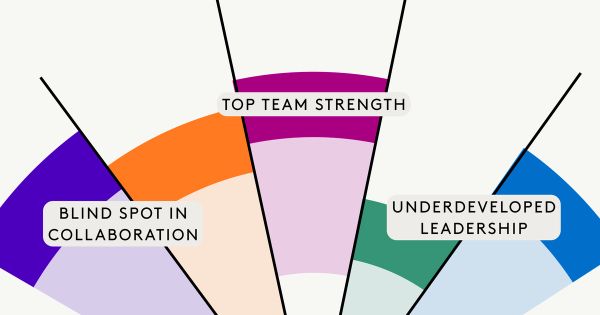The most desirable skills for work are not really skills

News flash! The soft skills that will help us be ready for work are not skills at all! To be work-ready our innate abilities need unlocking.
For more than 20 years, the Confederation of British Industry (CBI) has had a problem with the work-readiness of young applicants and employees. The CBI represents 170,000 employers and nearly eight million employees. Their voice carries power in the evolution of education and learning in the workplace. Despite the best efforts of the educational establishment, the problem seems only to have escalated over the years.
The birth of Soft Skills
The lack of work-readiness has been called many things, ‘the Soft Skills gap’ being the most common. These Soft Skills are a series of competencies that transfer between job roles. On one level, it is the digital and technical skills we all need to succeed today in the workplace, no matter our profession. At another level, it is the capacity to work well with others and encourage collaboration.
From managing change to leading people, from being the best communicator to being a driver of innovation, there are many Soft Skills to attain. It might be how to use personal branding to establish your presence in your profession or skills in conflict resolution, to inspire a unified approach to a problem.
Unlike the hard skills that keep us fenced into a career, these competencies help us transcend barriers across the workforce and to progress. In a fast paced world, our ability to adapt our skillset and take on new roles will be an essential skill in itself.
It has taken 20 years of evolution of thought for this need for Soft Skills to truly take hold. It has taken the rapidly evolving technology that will make many jobs redundant to help us realise that these softer skills carry value.
What is required to succeed in the workplace?
What if the skills needed to bring about a work-readiness revolution are not skills at all?
What if we acknowledge that we are not called “human doings” but “human beings”?
It is not what we do to help us thrive in the workplace; it is how we show up. It is who we choose to be.
Let’s explore two examples to help illustrate this point.
The Soft Skill of team building is highly desirable, especially if someone aspires to the C-Suite. What would anyone need to be to become a great builder of teams? Well, first, to be humble. To recognise that they won’t know everything, and they will need the support of other talents for the team to succeed. They will need to be accountable though, they will be responsible for the success or failure of the project, which will require them to be committed. The way they show up to their team matters too. They will need to be authentic; any sense of acting a role will likely be found out and disrespected quickly. They will need to be harmonious, looking to bring people together into their vision, which will require them to be expressive.
What about the Soft Skill of researching? First, it requires us to be curious enough to ask the questions, but also to be detached and open-minded enough to find out unexpected answers. On a more pragmatic level, to be organised, purposeful and perceptive enough to carry out the research and draw conclusions to be meaningful.
What if we use one soft skill and one technical skill as examples? And then wrap up this section with something like: Any skill, technical or not, requires us to BE something first – that pertains to Character.
The difference between catching up and being ahead
If we start focusing on being first, we will be ahead rather than constantly catching up.
What do we mean? Well, let’s look again at digital literacy.
Most business leaders would say that they are constantly upskilling employees in digital literacy. They have a program of courses designed to keep professionals up to date with the latest requirements of technology. Once a year or so, they get all their people together and hothouse them with the latest understanding and send them off to apply it.
Over the year, between courses, digital literacy is becoming slowly irrelevant. As each day passes, the person is deskilled due to the need for an update.
What if, instead of or as well as, businesses challenged their professionals to be visionary; to look to the future and be ahead of the game with the digital landscape. As new innovations are released, they would be curious enough and, with a strategic mindset, understand how it applies in their organisations. Rather than waiting to be told what to think, they have the character to go out and shape thought.
Time to reflect
We are transitioning to a period where human competence is more critical than ever. Being first, to do better. The most in-demand skills in the world aren’t simply skills. They stem from Character Qualities that determine how we think, perform and make decisions. They have a direct impact on how we articulate and apply knowledge, and go beyond it to evolve and thrive. By developing them, we automatically optimise personal competence, technical ability, and develop any new skills faster and more efficiently.
You may also like

Summer Break: A Guide for Graduates

